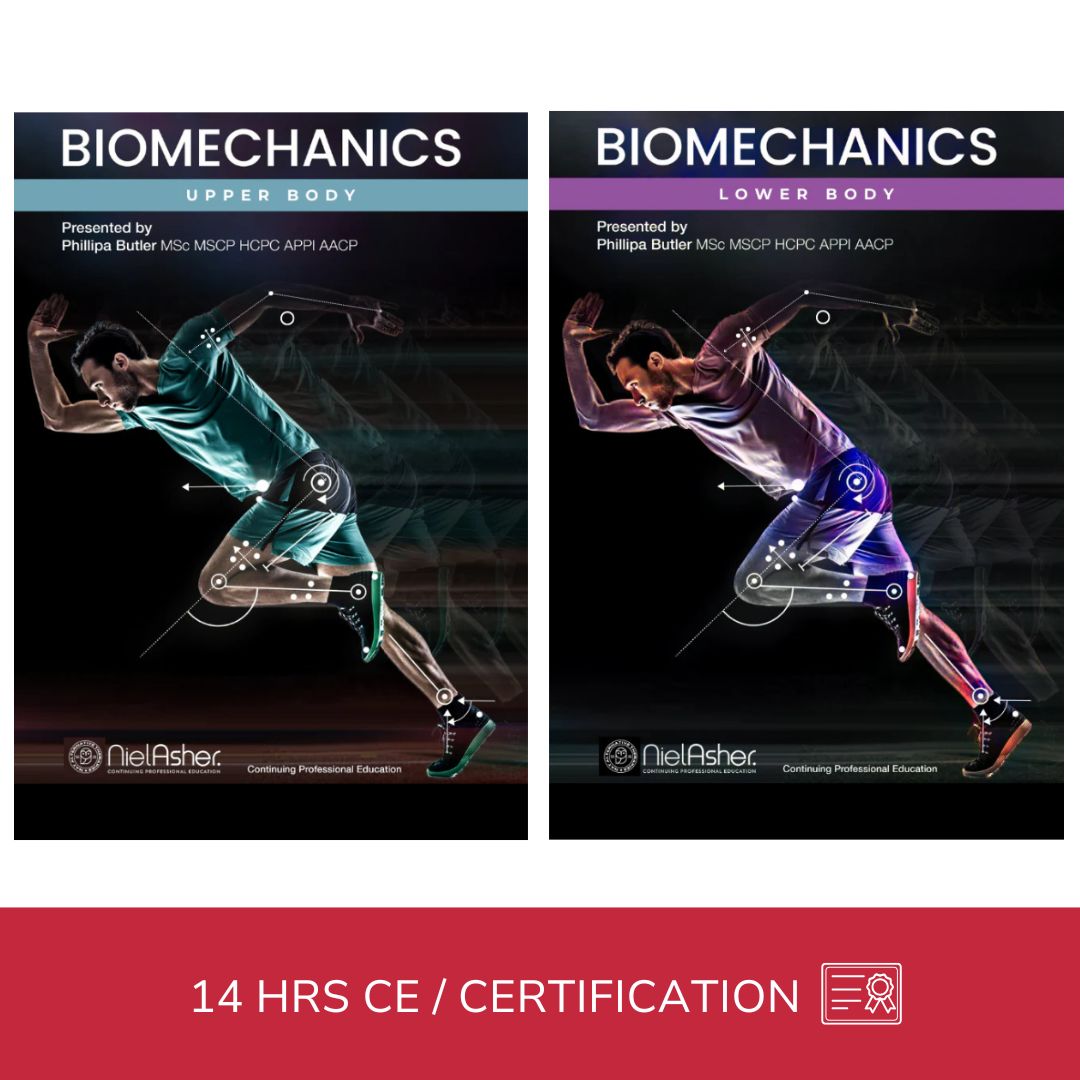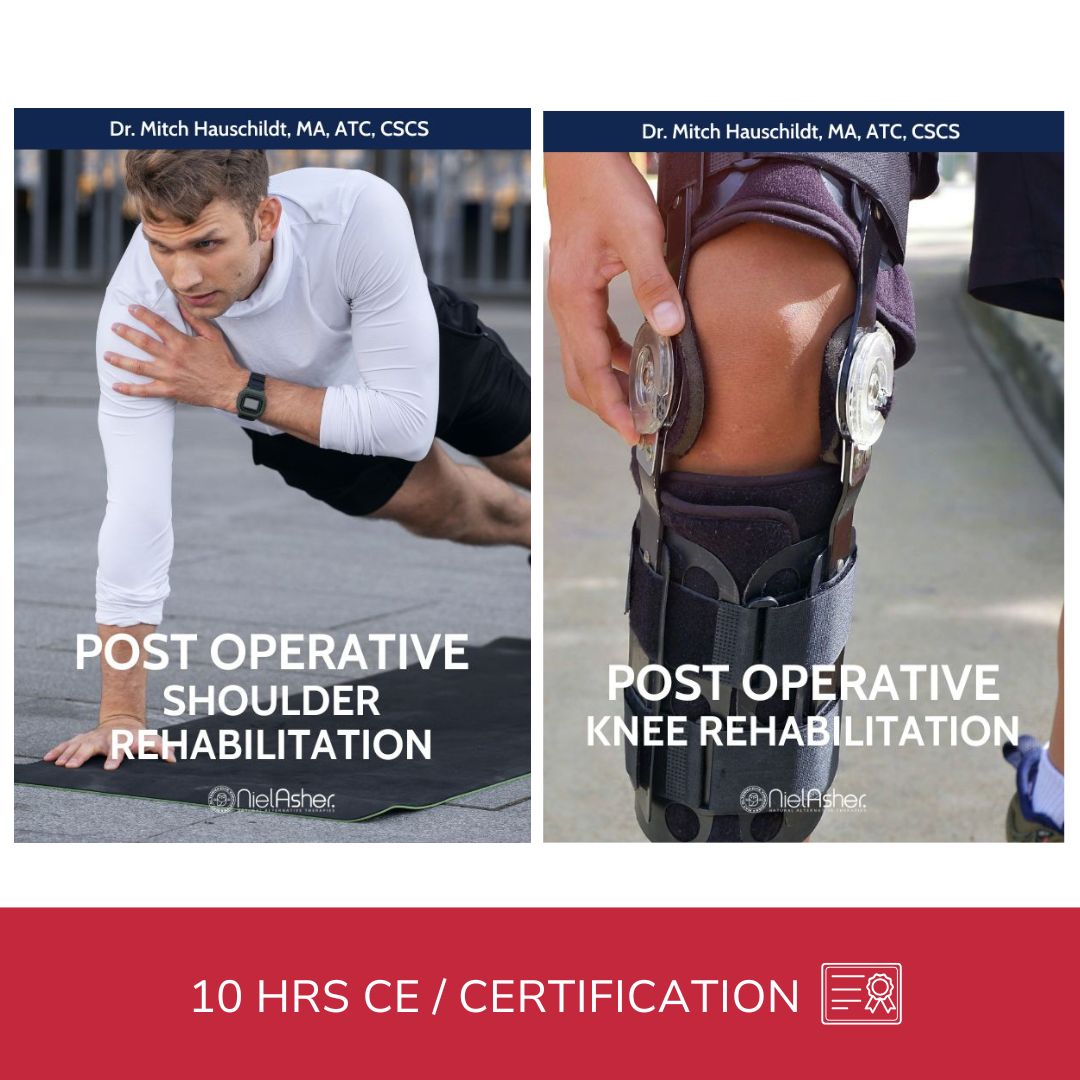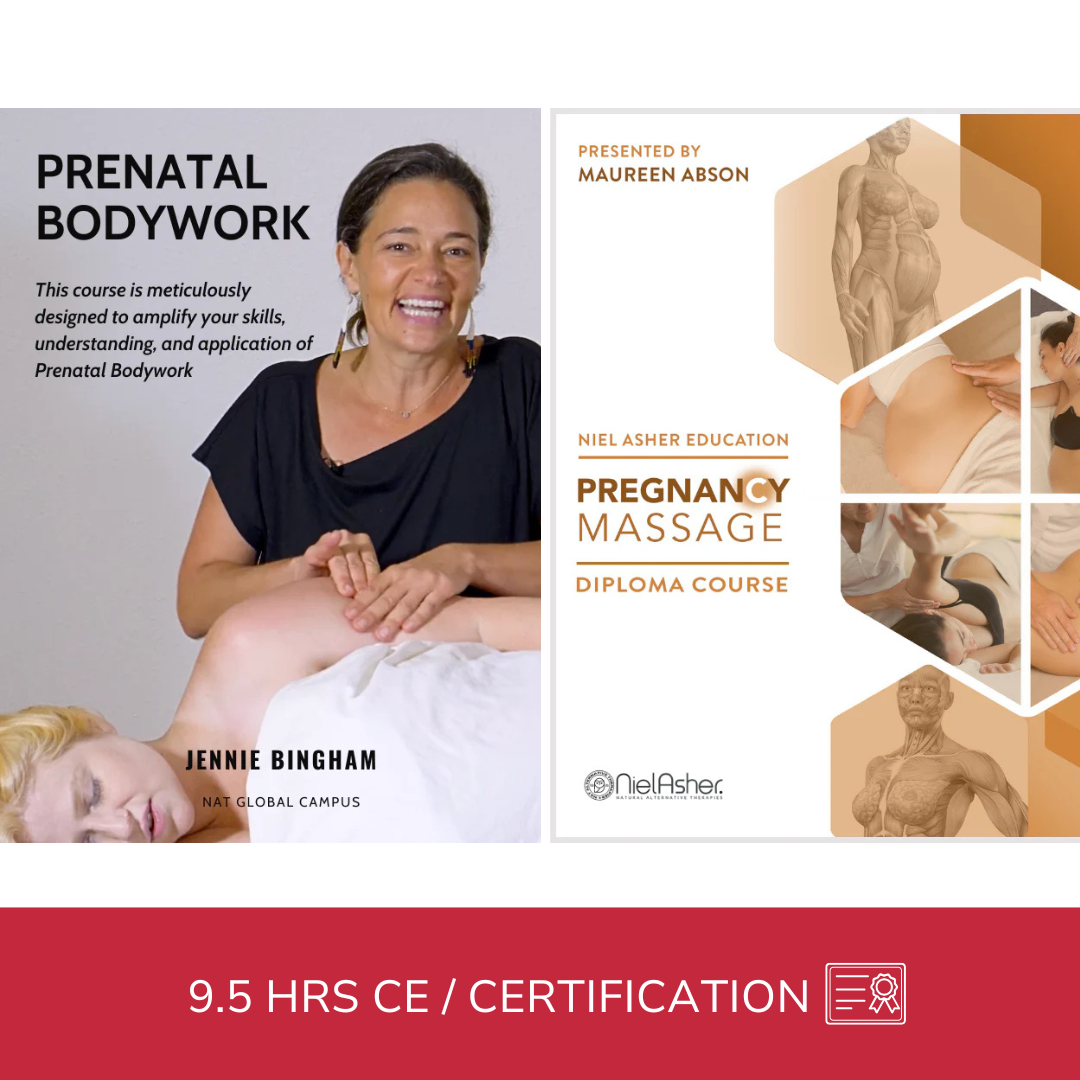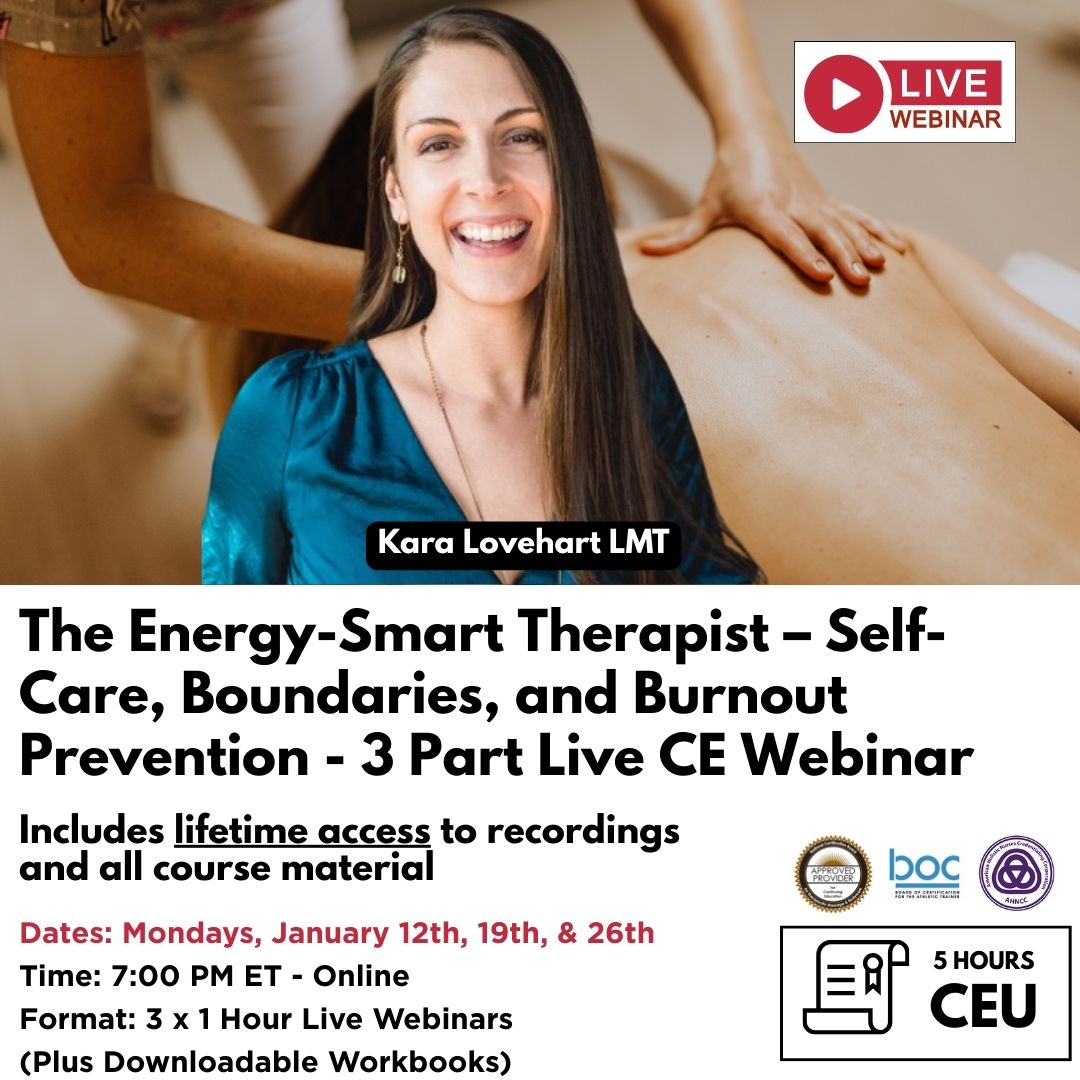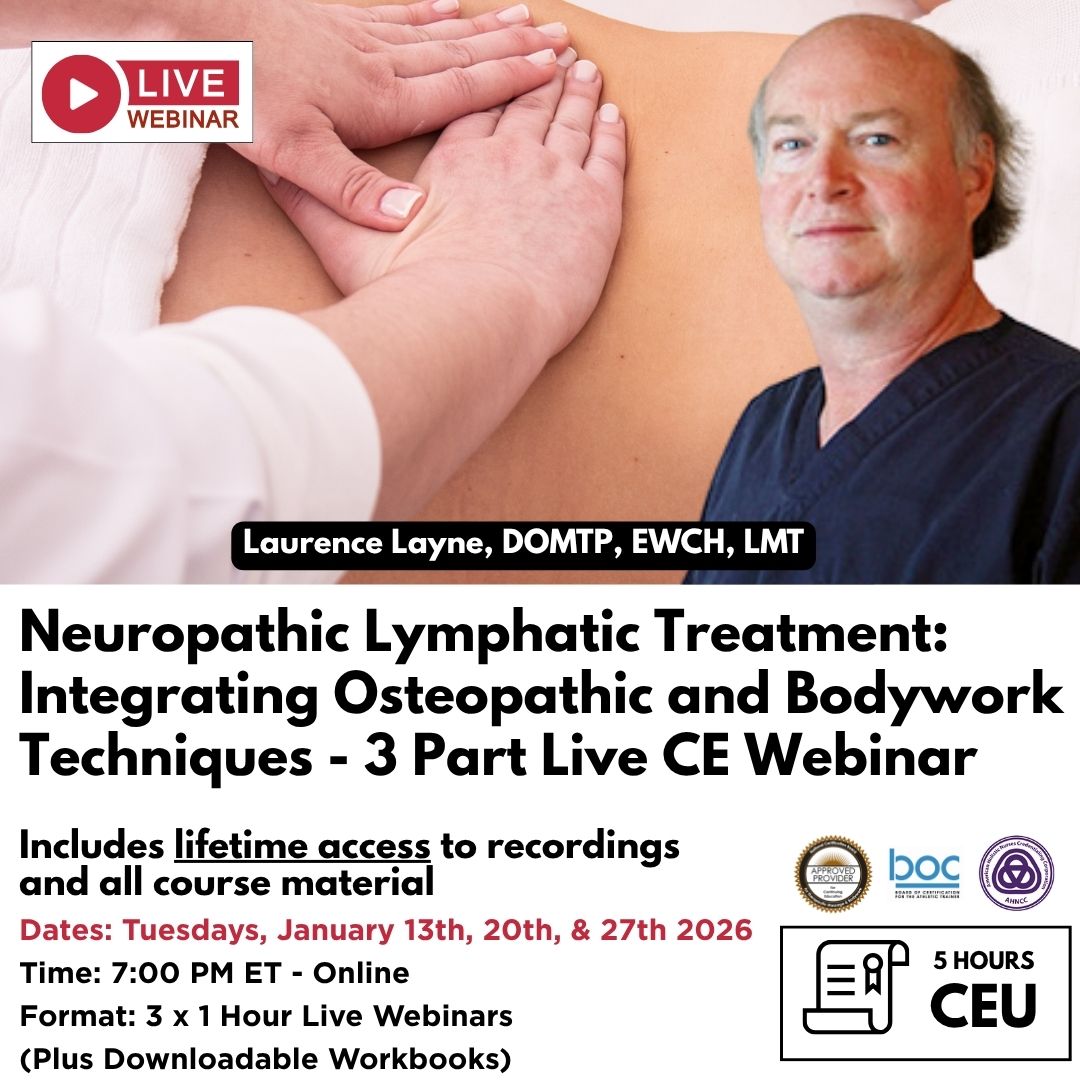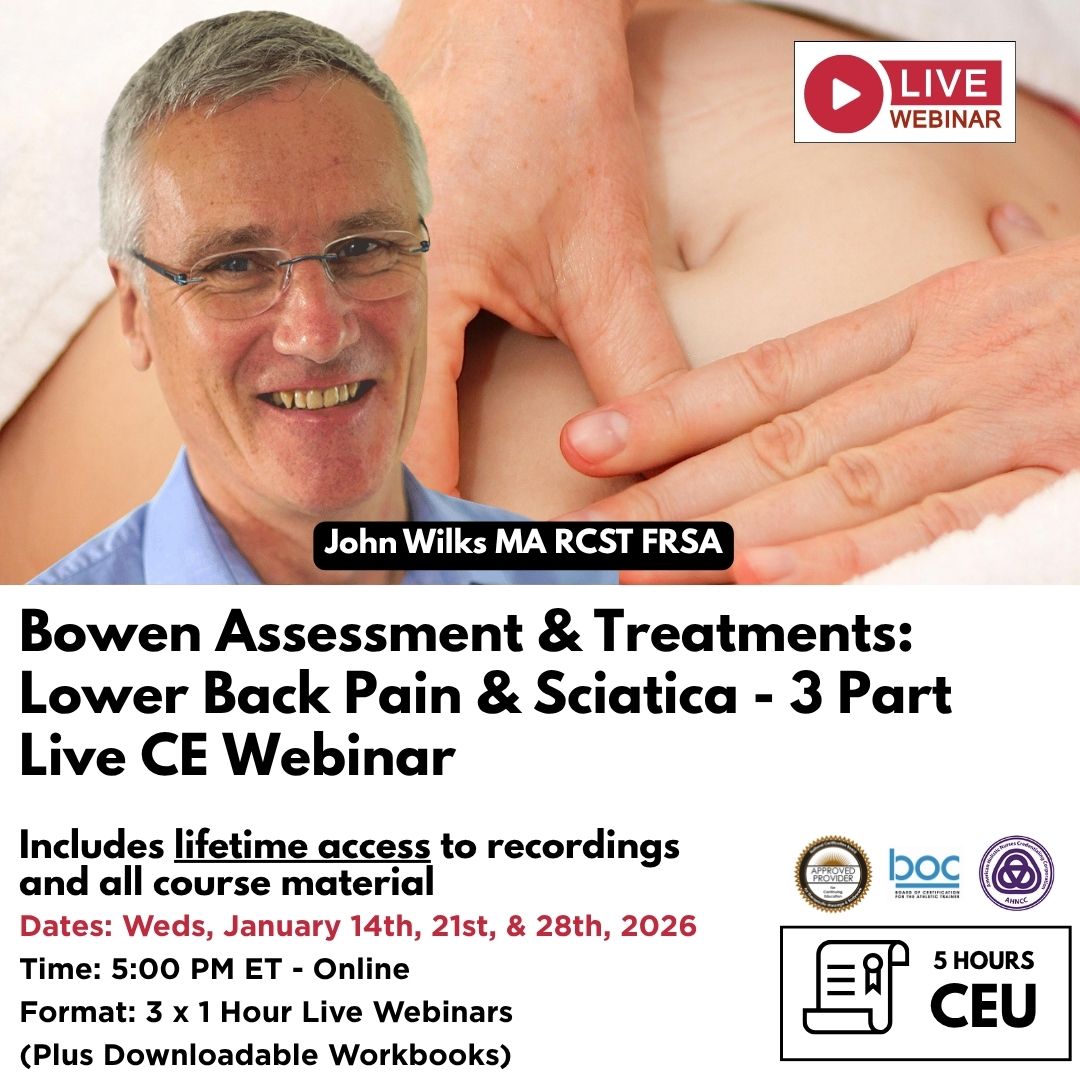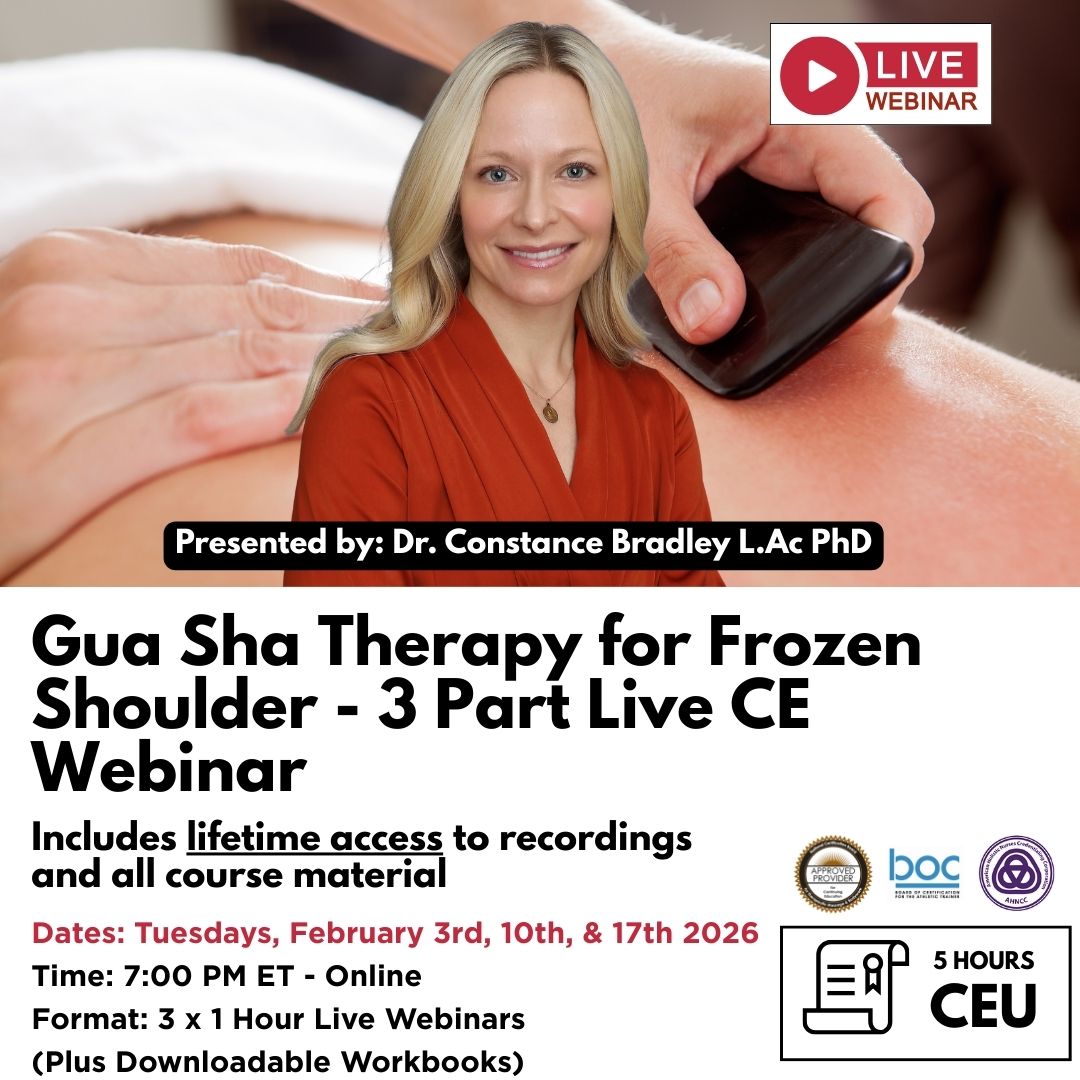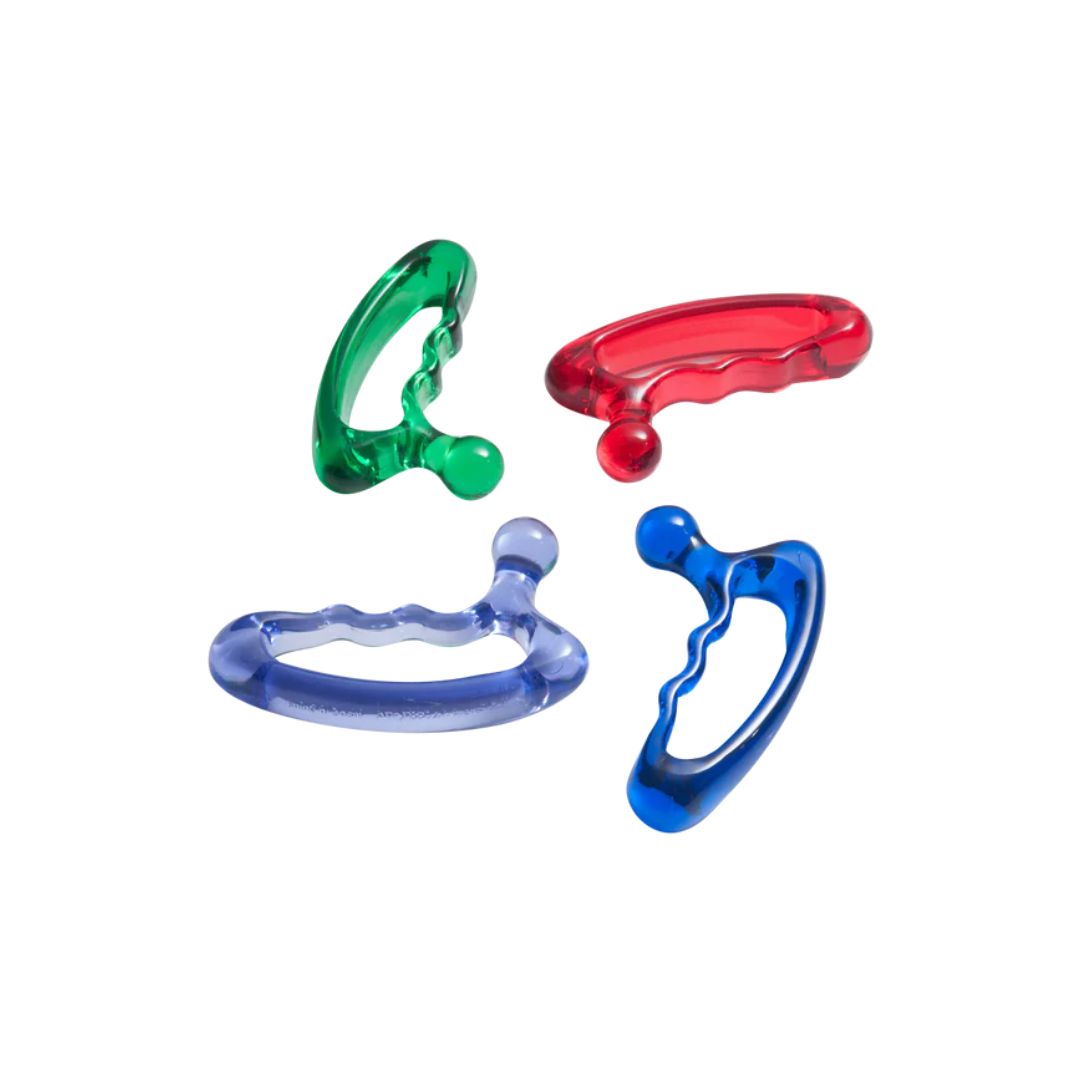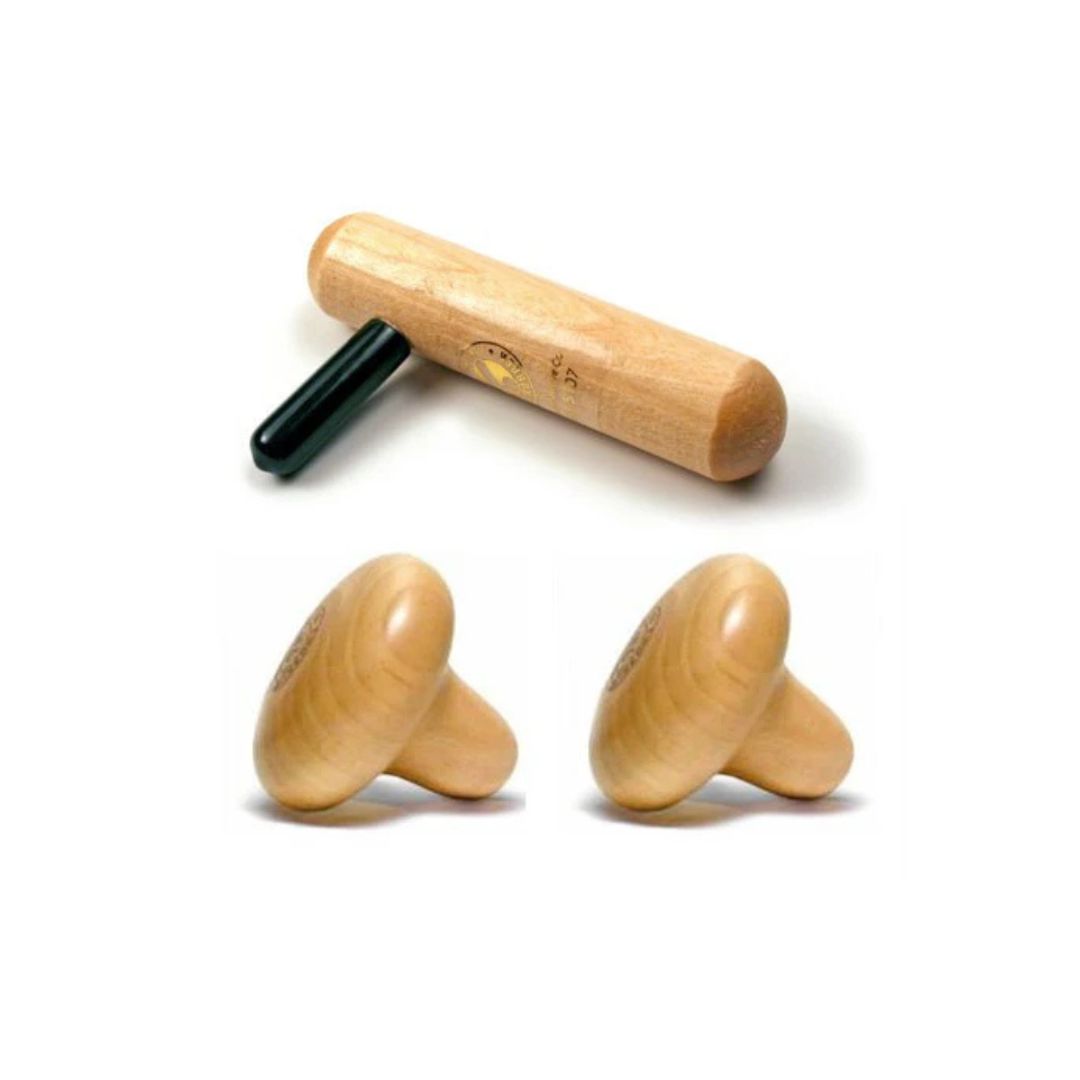Trigger Point Therapy - Treating a Herniated Disc
Treating Gluteus Maximus Trigger Points - Dr. Jonathan Kuttner
(Video: Edited extract from NAT "Treating Lower Back Pain" Trigger Point Course Presented by Dr. Jonathan Kuttner)
Treating Back Pain? - Start Here
Even when back pain is due to a diagnosed spine related injury, trigger points are still likely to be a prime cause of the pain
Travell and Simons work in this area is well known. They submitted that trigger points may actually be the root cause of many common spinal conditions, including a herniated disc.
They reasoned that the shortening and tightening of the muscles could be the main source of disc compression and spinal nerve impingement.
The spine is formed in such a way as to allow movement whilst also protecting the spinal cord (the nerve bundle that runs from the brain and down the length of the spinal column).
The nerves of the spinal cord exit through holes either side of the disc (foraminae).
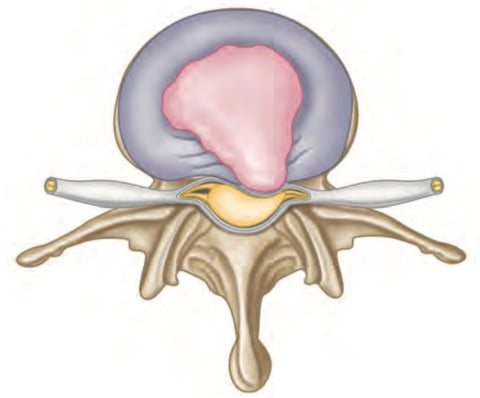
What is a Herniated Disc?
The spine, as we know, is made up of 33 vertebrae and most are separated by rubbery cartilaginous cushions, called discs.
These jelly-like discs are soft on the inside with a tougher exterior (annulus fibrosus).
Herniated discs are often referred to as “bulging discs,” “prolapsed discs,” or even “slipped discs.”
These terms are derived from the nature of the action of the gel- like content of the nucleus pulposus being forced out of the center of the disc.
Just to clarify, the disc itself does not slip; however, the nucleus pulposus tissue that is located in the center of the disc can be placed under so much pressure that it can cause the annulus brosus to herniate or even rupture.
The severity of the disc herniation may cause the bulging tissue to press against one or more of the spinal nerves, which can cause local and referred pain, numbness, or weakness in the lower back, leg, or even ankle and foot.
Approximately 85–95% of disc herniations will occur either at the lumbar segments L4–L5 or at L5–S1.
The nerve compression caused by the contact with the disc contents will possibly result in perceived pain along the L4, L5, or S1 nerve root pathway.
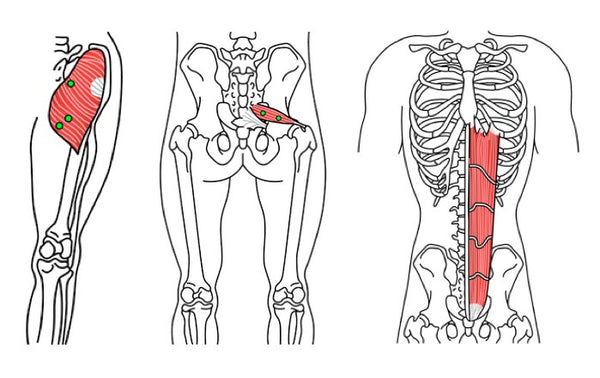
Trigger points may actually be the root cause of many common spinal conditions, including a herniated disc
What Are the Symptoms of Herniated Disc?
In most cases your client will be experiencing significant discomfort, with the severity depending on where in the spine the herniated disc occurs and if the local nerve tissue has been affected.
Typically, the discomfort is experienced in the local spinal muscles as an "ache".
Where enough disc tissue has exuded it can touch the spinal nerves nearby. In these cases the client often reports feeling a "shooting" type pain.
This pain would be distributed in the nerve pattern (dermatome) and often only on one side of the body. This “referred” pain can be accompanied by numbness and tingling in the part of the body that is affected by those nerves.
Where the client has a herniated disc in the neck, they will most likely feel intense pain in the shoulder and upper arm. If the herniated disc is in the lower back, they are likely to feel pain in the buttocks, leg and sometimes foot.
They may also experience weakness as the related muscle becomes affected, perhaps impeding their ability to hold items or causing them to stumble.
Who Is Prone to Herniated Disc?
The peak age for disc damage is 18-25, although symptoms may take several years to manifest. Those between the ages of 30 and 45 may suffer from a herniated disc as a result of a sports injury or from heavy lifting or even obesity.
Being male, getting older and a history of back injury all make us more prone to a herniated disc. Some studies have also suggested that disc disease may be due to low grade bacterial infection.
Other factors include: the regular lifting of heavy objects; frequent twisting and turning of the body for work or exercise; being exposed to constant vibration (from driving heavy vehicles or agriculture machinery); sitting for long periods of time (frequent flyers).
Trigger Point Therapy
With a herniated disc we look for trigger points in the piriformis, gluteus maximus and rectus abdominis.
We use a sequential trigger point therapy technique, combined with a program of stretching and strengthening exercises.
Those with herniated discs are another in that category of clients where we typically expect to see fast results in terms of both short and long term relief.
Find a Trigger Point Professional in your area
Learn More About Back Pain Treatment
Dry Needling for Trigger Points
Certify as a Trigger Point Therapist
About NAT Courses:
As a manual therapist or exercise professional, there is only one way to expand your business - education!
Learning more skills increases the services that you offer and provides more opportunity for specialization.
Every NAT course is designed to build on what you already know, to empower you to treat more clients and grow your practice, with a minimal investment in time and money.
Best of all, we're always here to offer help and support.
This trigger point therapy blog is intended to be used for information purposes only and is not intended to be used for medical diagnosis or treatment or to substitute for a medical diagnosis and/or treatment rendered or prescribed by a physician or competent healthcare professional. This information is designed as educational material, but should not be taken as a recommendation for treatment of any particular person or patient. Always consult your physician if you think you need treatment or if you feel unwell.
About Niel Asher Education
Niel Asher Education (NAT Global Campus) is a globally recognised provider of high-quality professional learning for hands-on health and movement practitioners. Through an extensive catalogue of expert-led online courses, NAT delivers continuing education for massage therapists, supporting both newly qualified and highly experienced professionals with practical, clinically relevant training designed for real-world practice.
Beyond massage therapy, Niel Asher Education offers comprehensive continuing education for physical therapists, continuing education for athletic trainers, continuing education for chiropractors, and continuing education for rehabilitation professionals working across a wide range of clinical, sports, and wellness environments. Courses span manual therapy, movement, rehabilitation, pain management, integrative therapies, and practitioner self-care, with content presented by respected educators and clinicians from around the world.
Known for its high production values and practitioner-focused approach, Niel Asher Education emphasises clarity, practical application, and professional integrity. Its online learning model allows practitioners to study at their own pace while earning recognised certificates and maintaining ongoing professional development requirements, making continuing education accessible regardless of location or schedule.
Through partnerships with leading educational platforms and organisations worldwide, Niel Asher Education continues to expand access to trusted, high-quality continuing education for massage therapists, continuing education for physical therapists, continuing education for athletic trainers, continuing education for chiropractors, and continuing education for rehabilitation professionals, supporting lifelong learning and professional excellence across the global therapy community.
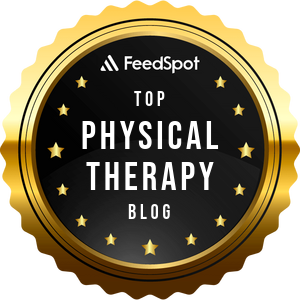
Continuing Professional Education
Looking for Massage Therapy CEUs, PT and ATC continuing education, chiropractic CE, or advanced manual therapy training? Explore our evidence-based online courses designed for hands-on professionals.


